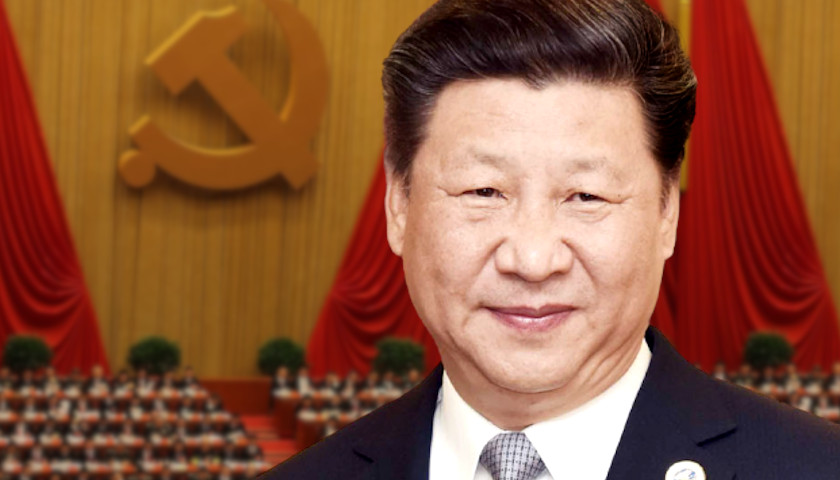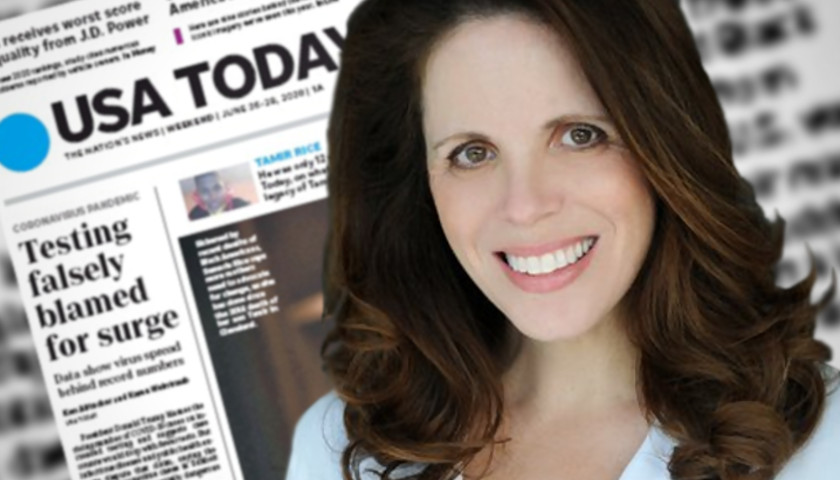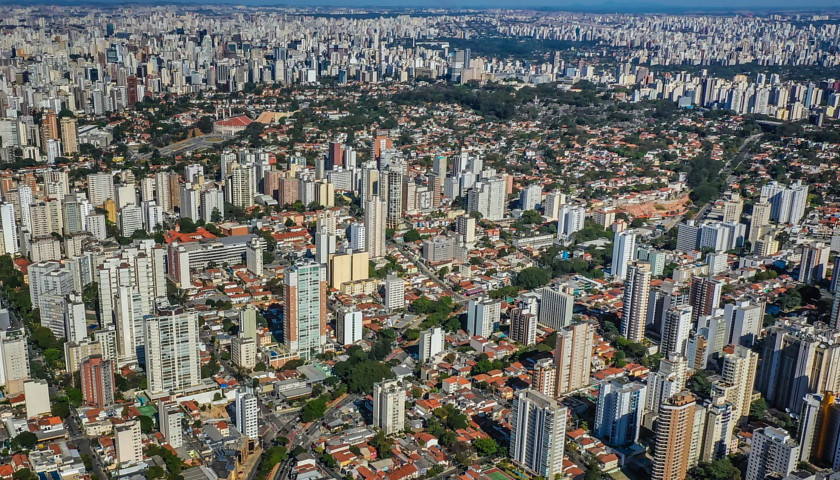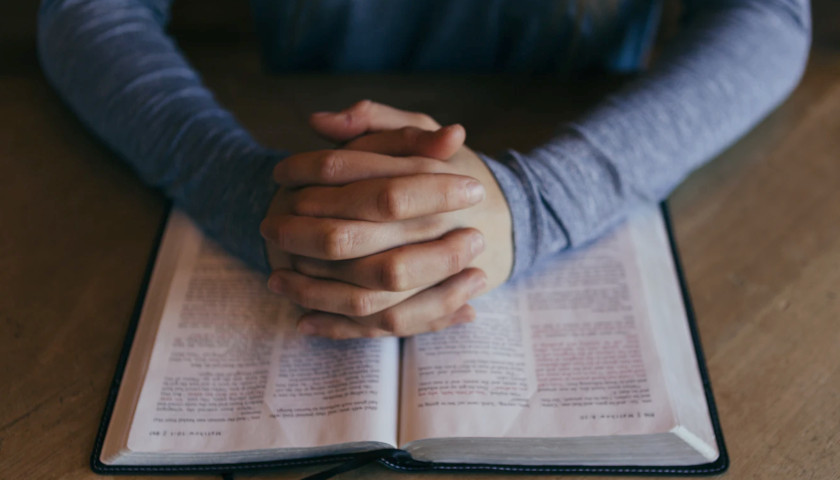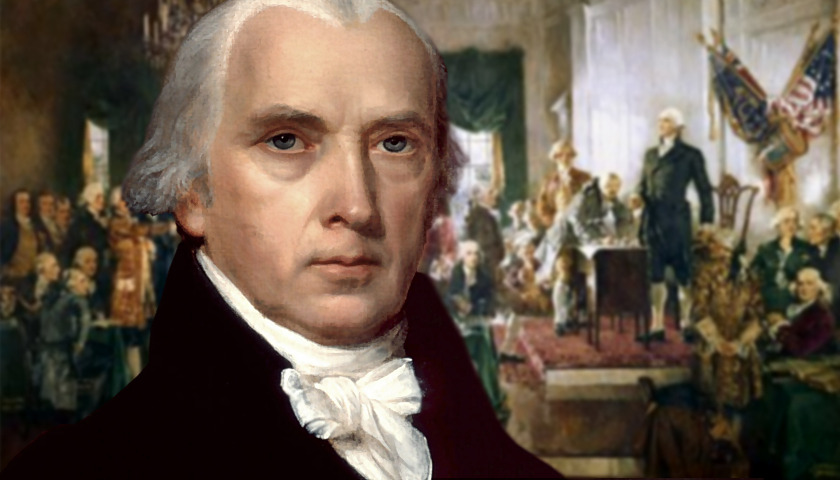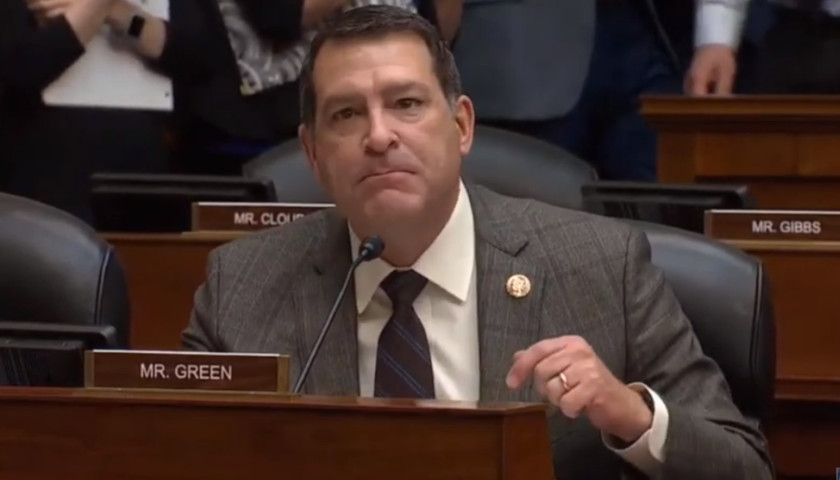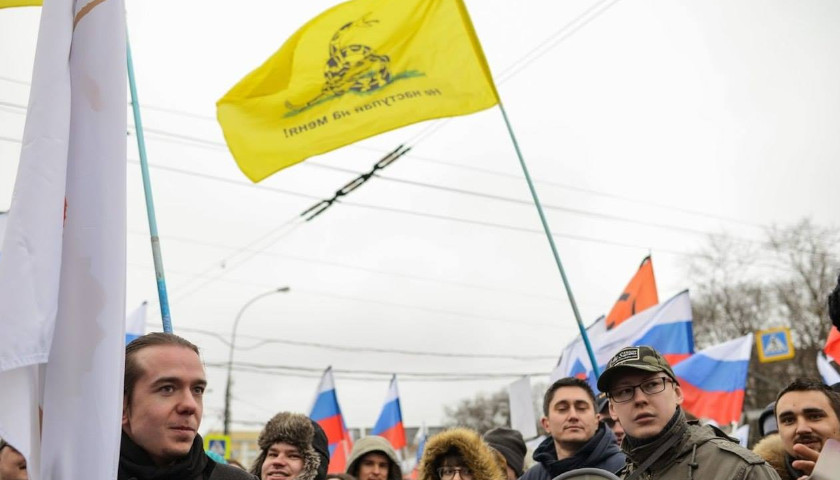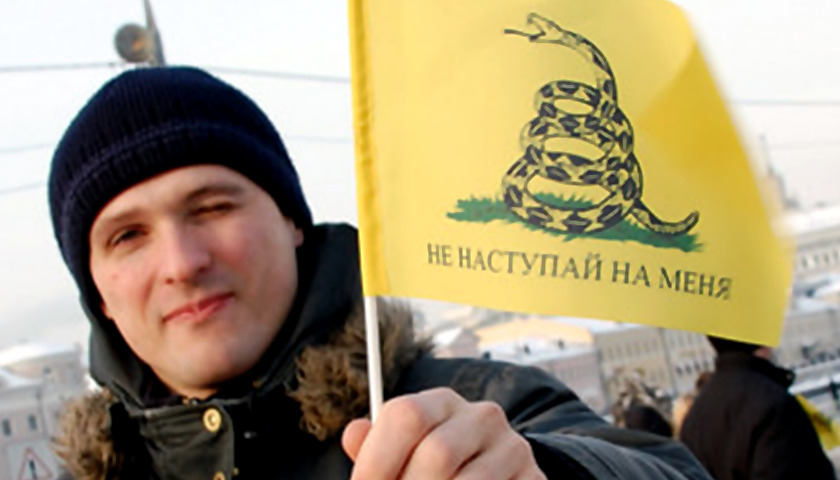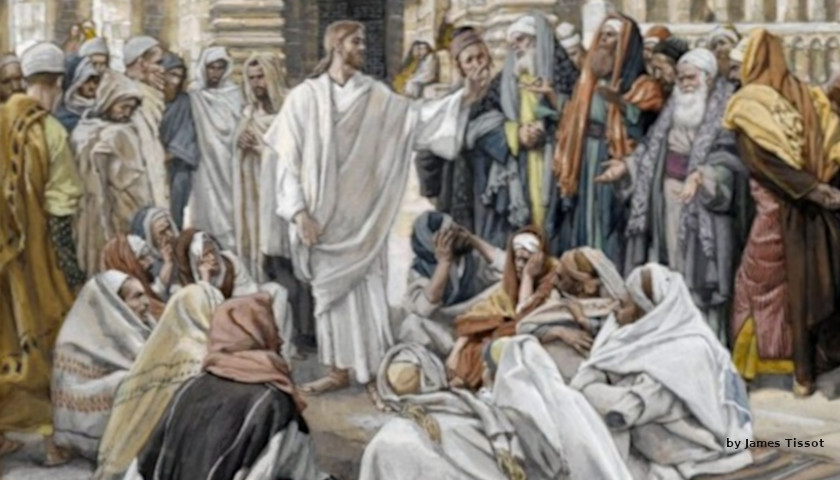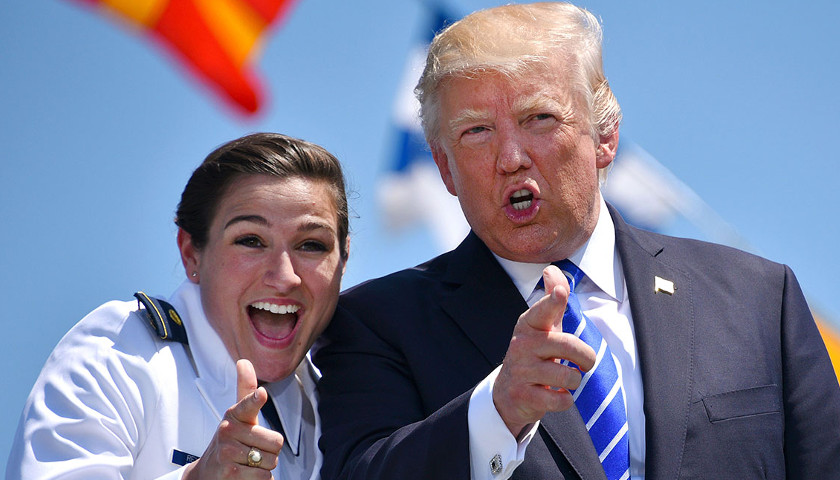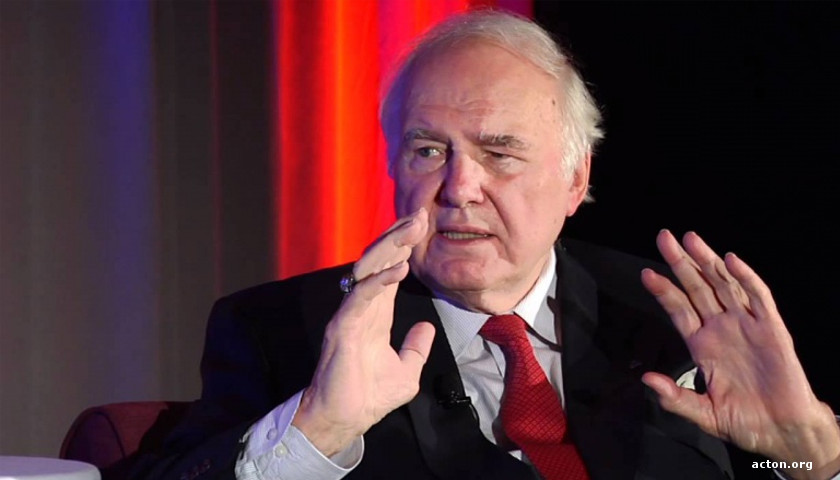Thursday morning on the Tennessee Star Report, host Michael Patrick Leahy welcomed all-star panelist, Dr. Carol M. Swain, to the show to discuss the anniversary of the Mayflower Act and its significance in American history.
Read the full storyTag: liberty
Commentary: Advancing Liberty by Divesting from China
No President in our lifetimes has been tougher on China than President Donald Trump. The Trump administration has courageously and steadfastly taken on China’s many trade abuses, threats to national security and human rights abuses. His Art of the Deal got China to agree to a phase one trade agreement even though it left tariffs of 25 percent on $250 billion of goods and another 7.5 percent on the remaining $300 billion of goods. The administration have made it clear to Beijing that its continued actions that threaten Hong Kong and Taiwan will not go unchecked. And the Defense Department has named 31 companies listed on U.S. stock exchanges that are either owned or controlled by the Chinese Communist Party and military.
Read the full storyDr. Simone Gold Commentary: We Do Not Consent
It is clear to me as a physician-lawyer that the disinformation about both Covid-19 and the Constitution has caused us to turn a medical issue into a legal crisis.
The scientific usefulness of a mask has been so aggressively overstated, and the foundational importance of the Constitution has been so aggressively understated, that we have normalized people screaming obscenities at each other while hiking.
Read the full storyCommentary: When Enough is Enough, the ‘Woke’ Are ‘Awakening’
Recently, I read with great interest James Lindsay’s essay called “The Woke Breaking Point.” There, he invites his readers to ask friends and acquaintances “What would it take for you to say that the Woke movement has gone too far?” This, he suggests, is a way to help people keep themselves honest: if you consider in advance what state of affairs, specifically, would be “too far,” then you will be able to recognize better the excesses of the totalitarian Left and more ready to resist them at the point when it becomes absolutely necessary.
Read the full storyCommentary: Resolving the Argument Between Lockdown and Liberty
As the debate between those who want an unlimited lockdown and those who want to reopen America as quickly as possible becomes more clangorous every day, months of intensive study and sad experience with the coronavirus enable us to determine the best course and resolve the argument.
The shutdown must end in all but severely afflicted areas. Its original purpose was to “flatten the curve.” In the early stages, the number of coronavirus reported cases and deaths in the United States was doubling every few days. Horrifying projections based on the scanty evidence available and hyped by the anti-Trump media to put as much pressure and blame on the president as possible for his initially somewhat casual treatment of the subject, stirred fears of millions of deaths and of a universal vulnerability to an almost untreatable fatal illness.
Read the full storyCommentary: Constitution-Respecting Sheriffs Refuse to Enforce Lockdowns
Across the country governors, county commissioners and executives, and city and town officials have announced “lockdowns” or stay-at-home orders of dubious constitutional validity. The result of these orders is the bizarre situation in which jails are being emptied of criminals while individuals engaged in their ordinary business at appropriate social distance have been arrested for the crime of being outside their home.
One of the most high-profile examples of this inverted constitutional order happened in California, where a paddle boarder was arrested near the Malibu Pier for ignoring orders from lifeguards to get out of the water. CBS News Los Angeles reports the unidentified man spent 30 to 40 minutes paddling in the ocean waters off Malibu Beach after refusing to heed orders from L.A. County lifeguards to go ashore. LASD Harbor Patrol brought in a boat, at which point the paddleboarder voluntarily swam in and was taken into custody.
Read the full storyCommentary: ‘Density Ideology’ Will Destroy America
If you’re searching for an organizing principle that unites the Left, density ideology should be at or near the top of your list. Far from being a sideshow, density ideology is behind the leftist drive to cram America’s rising population into the footprint of existing cities.
Read the full storyCommentary: Why Faith Is Key to Preserving Our Liberty
Attorney General William Barr gave an extraordinary speech at Notre Dame Law School last week, providing one of the most robust defenses of religious freedom in a generation.
Read the full storyCommentary: The American Founding’s High-Minded Purposes
by Edward J. Erler James Madison is justly celebrated for his frequently stated opinion that “all power in just and free Government is derived from compact.” But Madison’s view is not endorsed by all purported champions of the founders. A recent article, “Our Unwritten Constitution: Orestes Brownson and the Foundation of American Liberty,” published as part of the RealClearPolicy series on the American Project and co-authored by Richard M. Reinsch II and the late Peter Augustine Lawler, argues that Madison is utterly mistaken in his claim. In fact, the authors claim that reliance on “Lockean contract theory” produced a constitution that was “devised solely in the interest of the rights of individuals” and was “based on the unrealistic abstraction of unrelated autonomous individuals.” Lawler and Reinsch claim that autonomous individuals – that is, human beings abstracted from real life – cannot provide the appropriate material for political life. They are not “parents, creatures, [or] even citizens. Lockean thought, thus, isn’t political enough to be the foundation of government, and it isn’t relational enough to articulate properly the limits of governments or the roles of family and organized religion.” Reinsch and Lawler rely heavily on Orestes Brownson’s criticism of Locke’s influence on the…
Read the full storyDemocrats’ Same-Day Voter Registration Bill Is ‘Micromanaging’ That Would ‘Seize Control of Elections in Tennessee,’ Rep. Green Says
U.S. Rep. Dr. Mark Green (R-TN-07) on Wednesday morning gave Democrats a tongue-lashing over legislation designed to force Tennessee and other states to offer voter registration the same day of elections. Green made the remarks during an Oversight and Reform Committee hearing over the Democrats’ H.R. 1 bill, “For the People Act of 2019.” The bill’s language and other information is available here. Green said the bill should be called the “Fill the Swamp Act.” He added, “It seems every year that passes more and more power is shifted away from the people and into the hands of a wealthy, elite few in Washington. These politicians and bureaucrats can’t help themselves from micromanaging more and more of our everyday lives. “From our roads and bridges, our firearms, the relationship with our doctors, our elementary schools, our farms, and even our toilets, these freedom and federalism hating politicians can’t help themselves. “And now … now you want to decide how we run our elections?” Green did not finish there. He said, “The fact remains there is no constitutional authority for the federal government to come down and seize control of elections in Tennessee. The Constitution creates a federalist system with power…
Read the full storyCommentary: A Liberty Movement Is Growing in Putin’s Russia
by Lawrence W. Reed Except for a fishing trip to northern Canada in the 1960s, my first visit to a foreign country was to the old Soviet Union in March 1985. It was the month in which Soviet leadership passed from the aging old guard of communist hardliners into the hands of a younger and less rigid generation personified by Mikhail Gorbachev. Almost immediately, life loosened up. The Fall of Communism Between 1985 and 1991, I traveled four more times to the USSR. On my fifth visit, two weeks before the August 1991 failed coup against Gorbachev, I stopped in Kiev, Ukraine, and participated in a mass demonstration for Ukrainian independence from the Evil Empire. Other former satellites from Poland to Romania had already liberated themselves, and in December 1991, the USSR itself ceased to exist. Ukraine and 14 other constituent parts of the USSR became independent nations again. Those were heady days. Transformative ideas, circumstances, and personalities—the three elements that must be aligned to produce big changes—assembled in an extraordinary constellation. It yielded the most explosive geopolitical alterations of my lifetime. As a person whose first appreciation of liberty sprung from a teenage aversion to communist tyranny, witnessing…
Read the full storyThere’s a New Tea Party Brewing… in Moscow
by Vera Kichanova As Moscow celebrated its 870th anniversary, a futuristic $245 million Zaryadye Park was inaugurated in the heart of the capital — a generous present from Mayor Sergei Sobyanin to his citizens. The 32-acre park includes a ‘floating bridge,’ a piece of tundra, and even an ice cave. The miracle was designed by architects Diller Scofidio + Renfro, creators of the iconic High Line in New York, who describe Zaryadye as a piece of “wild urbanism.” Moscovian Politics Is Still Outdated “Wild urbanism” sounds like an ideal description of Sobyanin’s policy. Since he was appointed by Vladimir Putin in 2010, the Moscow mayor was trying to make the Russian capital look like any other modern capital — by flagrantly unmodern, Soviet/USSR-like means. To bring “order to city planning,” he bulldozed hundreds of kiosks overnight, leaving some one thousand citizens unemployed. More recently, he ordered to tear down 10 percent of Moscow’s housing stock and, in a Stalin-like manner, relocate 1.6 million inhabitants against their will. Last weekend, while Sobyanin was cutting the ribbon of Zaryadye Park, his administration was preparing another “present” for the citizens. Bloggers published a video where the deputy head of a local council in Moscow teaches her colleagues the…
Read the full storyCommentary: When Did It Become Okay to Disrespect the Culture, Traditions, and Values of America?
by Jeffery Rendall Wake up any particular morning and glance out the window. Do you notice anything different from the day before? Changes in weather or the seasons don’t count. Chances are you’ll see things appear pretty much the same – and if you’ve lived in one place long enough that’s true from year to year as well. Time slips by unobtrusively, so much so we don’t easily recognize all the transformations going on around us. Sometimes the changes are quite noticeable, however. Fox News host Laura Ingraham disturbed the liberal hornet’s nest last week with one such keen observation. Rick Moran of PJ Media reported, “It’s really too bad we can’t have a civil debate about anything anymore because Laura Ingraham’s observation that the ‘American we know and love doesn’t exist anymore’ in some parts of the country is a ripe topic for serious discussion. The Fox News host’s remarks were triggered by idiotic comments from nitwit Alexandria Ocasio-Cortez… “Ingraham acknowledged that Ocasio-Cortez was right ‘in a general sense,’ but was missing the point about what’s been changing in America: “[Ingraham said:] ’In some parts of the country it does seem like the America we know and love doesn’t…
Read the full storyChristianity: The First Major Religion That Stripped the State of Its Theocratic Powers
by Cuatro Jones When discussing the history of the West and exploring the ideas and philosophies that led up to the creation of the Magna Carta and the U.S constitution, eventually the religion of Christianity must be brought forward in the discussion. Why? Well, despite the many sins of Christians (and there are many), Christianity is the first major religion that, at its founding, stripped the state of its theocratic powers over the spiritual lives of the people. In the Biblical narrative, we see Jesus of Nazareth establish this foundational philosophy when answering a challenge from the Pharisees of Judea regarding to whom they should pay their monetary offerings: God (Yahweh) or Caesar? This question was designed to serve as a trap for Jesus, as the Jews were monotheistic and theocratic, and Roman law essentially made the Emperor a god. It is at this pivotal, though often overlooked moment, that Jesus sets the standard for the modern West regarding the role of government and religion in public life, “Render unto Caesar what is Caesar’s, and render unto God what is God’s.” This is critical because for the first time, we see a clear and categorical line of division between the palace and the temple, set by a central religious figure. This fundamentally…
Read the full storyCommentary: Why So Many Intellectuals Can’t Understand Patriotism
by John Miltimore Sam Haselby says this “should be the end times” for American patriotism. Yet the opposite seems to be happening, and he can’t understand why. America has no national education system, he notes. No conscription. No government agency that enforces the red-white-and-blue rituals performed at schools and sporting events coast-to-coast. Nor does America have a territorial rival, as France has in Germany, or China in India. “Patriotism is the organising passion of modern political life in the United States,” writes Haselby, an Ivy League-educated historian and senior editor at Aeon, “yet its vitality defies obvious explanation.” Whatever the cause of this strange phenomenon, it’s an idea that must be rooted out, Haselby makes clear. Patriotism is a sinister force, “the most deadly form of identity politics.” Haselby’s hostility toward American patriotism is related to his confusion of the concept. First, he views it as a “salubrious version” of European nationalism. European nationalism was indeed a pernicious force with an ugly history, but are it and American patriotism truly one and the same? Are they two ideas separated by nothing more than geography? The answer is no. But Haselby fails to see this because he prematurely rejects a second “old-style” idea…
Read the full storyMichael Novak Commentary: How Christianity Created Capitalism
by Michael Novak Capitalism, it is usually assumed, flowered around the same time as the Enlightenment–the eighteenth century–and, like the Enlightenment, entailed a diminution of organized religion. In fact, the Catholic Church of the Middle Ages was the main locus for the first flowerings of capitalism. Max Weber located the origin of capitalism in modern Protestant cities, but today’s historians find capitalism much earlier than that in rural areas, where monasteries, especially those of the Cistercians, began to rationalize economic life. It was the church more than any other agency, writes historian Randall Collins, that put in place what Weber called the preconditions of capitalism: the rule of law and a bureaucracy for resolving disputes rationally; a specialized and mobile labor force; the institutional permanence that allows for transgenerational investment and sustained intellectual and physical efforts, together with the accumulation of long-term capital; and a zest for discovery, enterprise, wealth creation, and new undertakings. The Protestant Ethic without Protestantism The people of the high Middle Ages (1100—1300) were agog with wonder at great mechanical clocks, new forms of gears for windmills and water mills, improvements in wagons and carts, shoulder harnesses for beasts of burden, the ocean-going ship rudder,…
Read the full story

